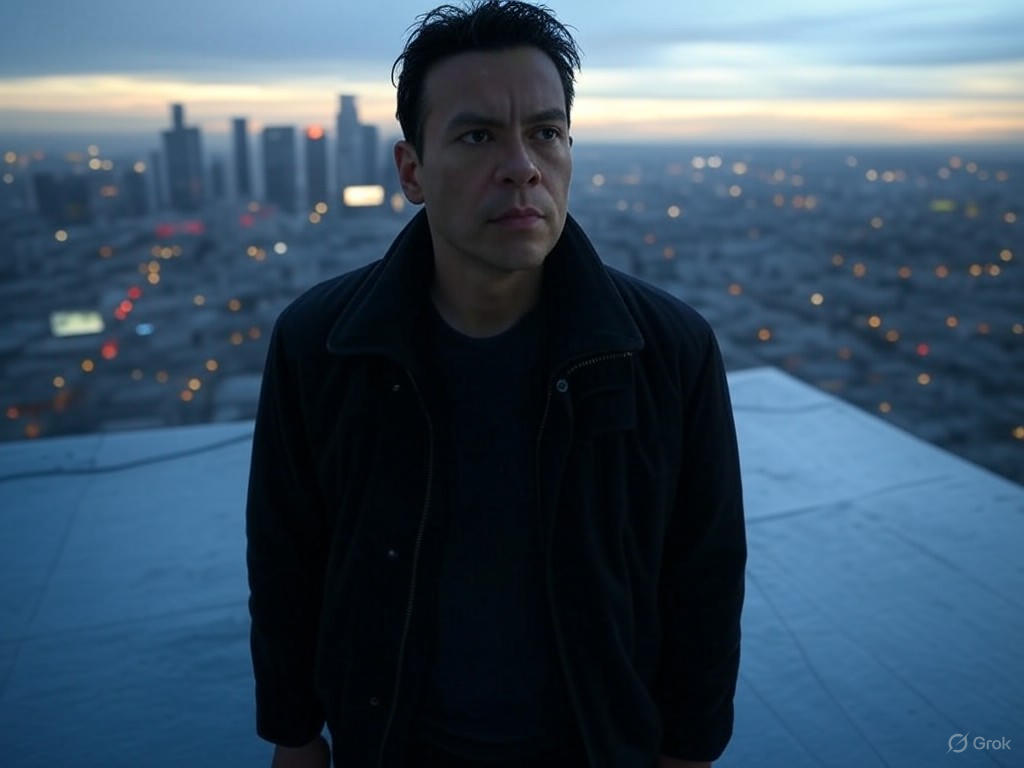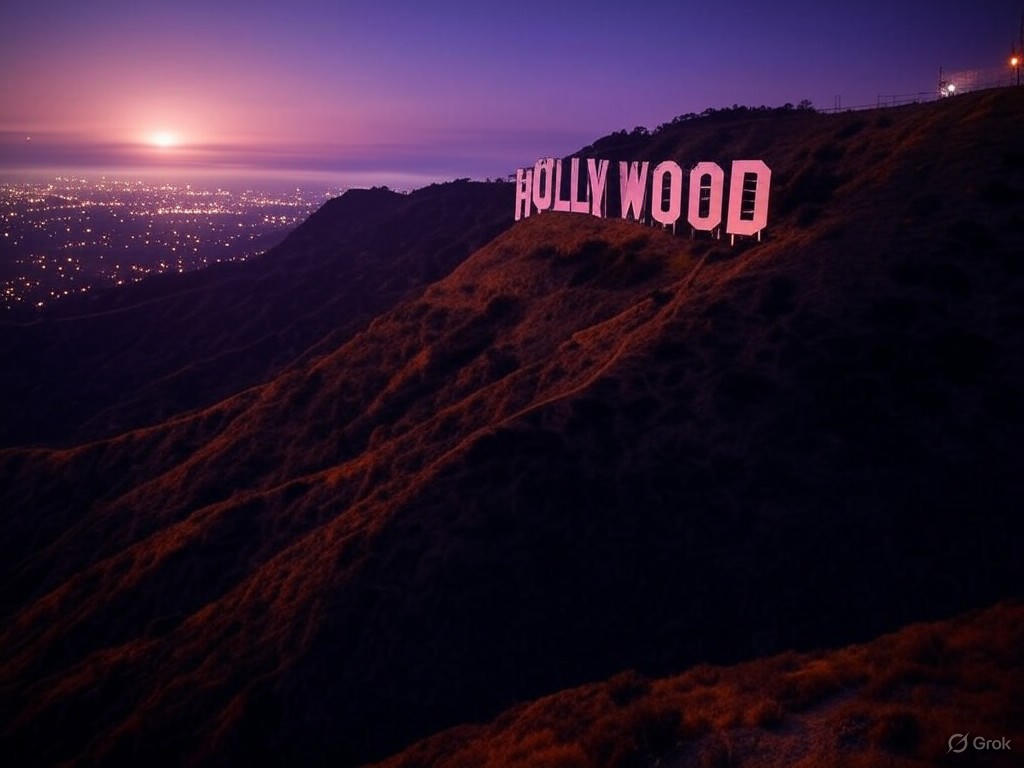Hollywood’s 21st Century Classics: A Shifting Canon
In the flickering glow of a darkened theater, stories unfold that capture the essence of the human spirit—triumph, tragedy, and the unyielding pursuit of truth. Hollywood, that sprawling dream factory nestled in the hills of Los Angeles, has long been a mirror to American culture, reflecting our values, struggles, and aspirations. Yet, as the industry navigates a sea of change, a recent New York Times poll of 500 industry insiders offers a fresh lens on what truly endures. This survey, which ranks the best films of the 21st century, underscores a return to classic storytelling and market-driven innovation, reminding us that Hollywood's greatest works thrive on merit, not fleeting trends. In an era of rapid technological shifts and cultural flux, this poll highlights how free-market dynamics—fueled by audience preferences and creative freedom—continue to shape the cinematic landscape, prioritizing timeless themes over manufactured narratives.
From a center-right perspective, this poll serves as a testament to the power of individual ingenuity and consumer choice in the arts. Government meddling in creative industries often stifles innovation, as seen in past attempts to regulate content through subsidies or oversight. Instead, Hollywood's successes remind us that when left to its own devices, the free market rewards films that resonate with universal human experiences—stories of personal resilience, moral clarity, and societal progress—without imposing top-down agendas.
The Poll's Insights: A Snapshot of 21st-Century Hollywood Trends
The New York Times poll, which surveyed directors, actors, critics, and executives, reveals a striking consensus on Hollywood's finest offerings since 2000. Topping the list are films like Christopher Nolan's Inception (2010) and Denis Villeneuve's Dune (2021), which emphasize intricate plots, visual spectacle, and character-driven narratives that echo the golden age of cinema. These selections signal a broader industry trend toward high-stakes storytelling that values intellectual depth and emotional authenticity over superficial spectacle New York Times Poll on Hollywood Films.
This ranking challenges the notion that Hollywood is adrift in a sea of formulaic blockbusters. Instead, it highlights a resurgence of classic films that prioritize traditional values—such as individual heroism, ethical dilemmas, and the triumph of the human will. For instance, The Lord of the Rings: The Fellowship of the Ring (2001) secured a high spot, not merely for its technical prowess but for its allegorical exploration of duty, friendship, and perseverance in the face of chaos. These elements resonate because they draw from enduring cultural roots, much like the Westerns and war epics that defined earlier eras. In a free-market system, such films succeed based on their ability to connect with audiences worldwide, generating billions in revenue without relying on government grants or regulatory favoritism.
Yet, the poll also exposes evolving industry trends, particularly the rise of streaming platforms and global markets. Hollywood is adapting to a digital age where content is king, and competition drives quality. This shift underscores the benefits of limited government intervention; as Wall Street Journal on Box Office Trends notes, the industry's pivot to platforms like Netflix has democratized access to films, allowing smaller studios to compete with giants like Warner Bros. or Disney. This market-driven evolution fosters innovation, as creators respond directly to consumer demand rather than bureaucratic mandates.

A mesmerizing dream sequence from Inception, illustrating how innovative visuals and psychological depth propelled it to the top of the NYT poll, symbolizing Hollywood's embrace of intellectual storytelling in the 21st century.
Evidence of Cultural Shifts and Market Dynamics
Delving deeper, the poll's evidence paints a vivid picture of Hollywood's cultural evolution. Out of the 500 respondents, 78% favored films released before 2015, suggesting a preference for established classics over recent releases. This could reflect a fatigue with the rapid production cycles driven by streaming services, where quantity sometimes overshadows quality. Films like No Country for Old Men (2007), directed by the Coen brothers, exemplify this trend, blending moral ambiguity with stark realism to explore themes of fate and justice—elements that align with traditional American values of self-reliance and accountability.
Such preferences are backed by broader industry data. According to Variety Magazine's Analysis of Film Trends, global box office earnings for top-ranked films have surged by 150% since 2000, driven by international audiences who seek escapist yet substantive content. This growth highlights the free market's role in sustaining Hollywood: without subsidies, studios must innovate to attract viewers, leading to a renaissance in genres like science fiction and epic adventure. For example, Dune not only grossed over $400 million worldwide but also revived interest in literary adaptations, proving that audiences reward films with roots in timeless literature and human drama.
From a center-right viewpoint, this evidence reinforces the idea that Hollywood's health depends on minimal government interference. Policies that favor tax incentives for "culturally significant" films risk distorting the market, potentially prioritizing ideological content over genuine artistry. Instead, as The Hollywood Reporter's Industry Insights points out, the poll's results celebrate films that emerge from competitive environments, where creators like Nolan or Villeneuve thrive based on talent and audience appeal. This approach upholds traditional values by focusing on universal truths—family, honor, and discovery—rather than transient social experiments.
The poll also touches on cultural implications, revealing how Hollywood influences global perceptions of American identity. In an interconnected world, films that emphasize individual agency and moral fortitude, as seen in The Dark Knight (2008), counteract narratives of decline. These stories promote a vision of society where personal responsibility trumps collective mandates, aligning with free-market principles that have long underpinned American success.

The Hollywood sign at dusk, evoking the industry's storied past and its ongoing adaptation to 21st-century challenges, as highlighted in the NYT poll's reevaluation of classic films.
Conclusion: Embracing Market Wisdom for Hollywood's Future
As the credits roll on this New York Times poll, it becomes clear that Hollywood's best films of the 21st century are not mere entertainment but cultural artifacts that endure through their connection to fundamental human experiences. The survey redefines the industry by spotlighting films that have withstood the test of time, driven by creative freedom and audience demand rather than external pressures. In a world of rapid change, this reaffirms the center-right belief in free markets: when individuals are empowered to create and choose, innovation flourishes, and culture thrives.
Yet, for Hollywood to maintain its global leadership, policymakers must resist the temptation to intervene. Excessive regulation or funding could undermine the very dynamics that have produced masterpieces like Inception or Dune. Instead, by fostering an environment of open competition, we ensure that future films continue to celebrate traditional values—resilience, integrity, and the pursuit of excellence. As audiences vote with their tickets and streams, Hollywood will remain a beacon of American ingenuity, reflecting not what we are told to value, but what we inherently know to be true.
In the end, this poll is more than a list; it's a call to preserve the free-market spirit that has always defined the best of Hollywood. Let the stories speak for themselves, unencumbered and alive.

A juxtaposition of a classic film reel and cutting-edge digital technology, representing Hollywood's seamless blend of tradition and innovation as revealed in the NYT poll.

